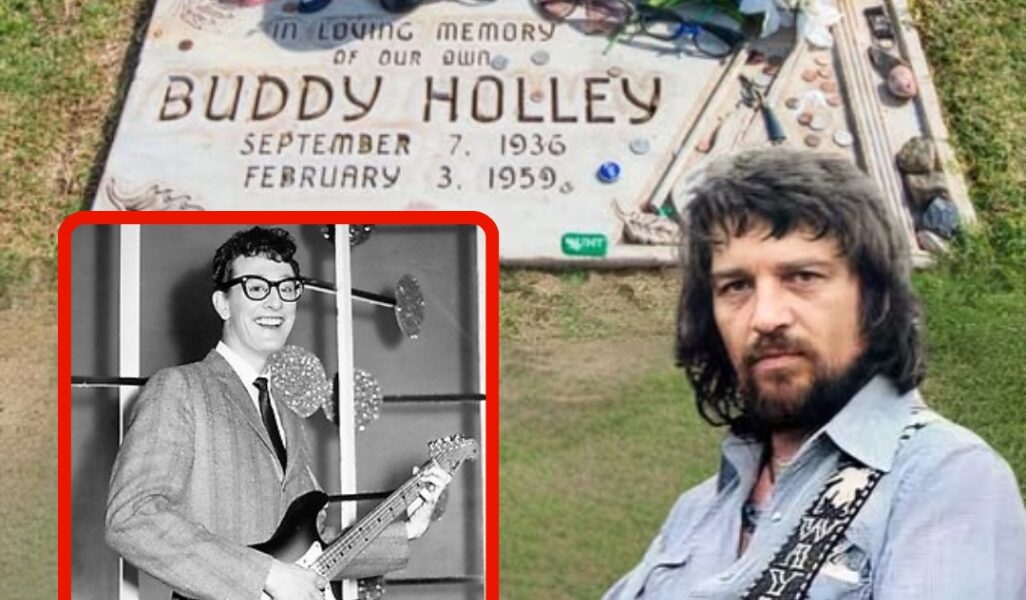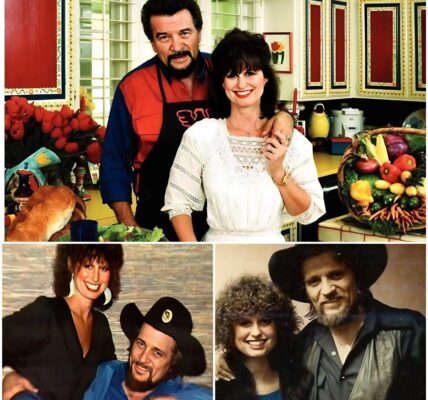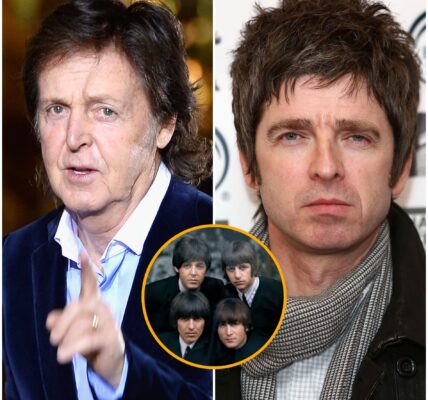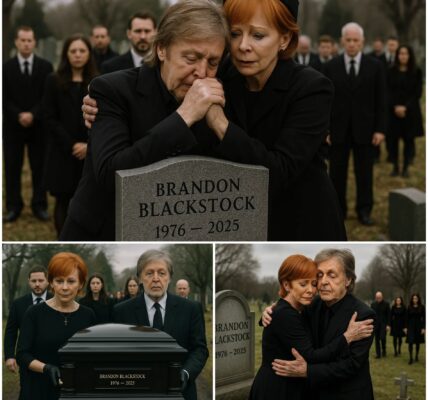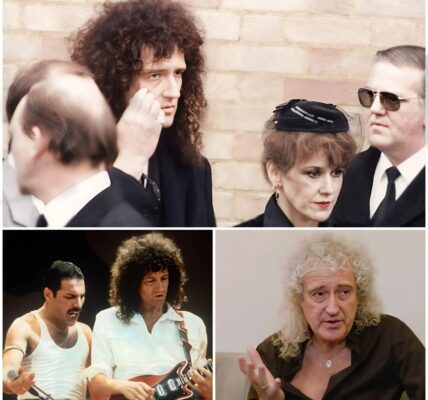On the frozen night of February 3, 1959, the air over Clear Lake, Iowa carried a silence that would echo across generations. A single-engine Beechcraft Bonanza lifted into the darkness, carrying three of rock and roll’s brightest young stars — Buddy Holly, Ritchie Valens, and J.P. “The Big Bopper” Richardson. Minutes later, the plane would be torn apart in a cornfield, and music history would fracture with it.
That night became immortalized as “The Day the Music Died.” But for Waylon Jennings, who was supposed to be on that plane, the story never ended. His fateful decision — a simple act of kindness to give up his seat — spared his life but left him burdened with a survivor’s guilt that would linger for decades.
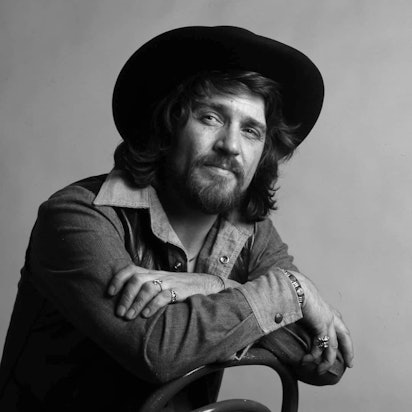
A Seat Traded, a Fate Sealed
Waylon Jennings was just 21 years old then, a bassist in Buddy Holly’s band. Touring the Midwest in the dead of winter, the musicians endured grueling hours on cold, unreliable buses. Buddy Holly, determined to find some relief, chartered a small plane to the next gig.
When Richardson, battling the flu, asked Jennings if he would mind giving up his seat, Jennings agreed without hesitation. “You take it,” he said. “I’ll ride the bus.”
It was a casual trade, nothing extraordinary in the moment. Yet when the plane went down, that decision drew an invisible line between life and death — and forever changed Jennings’ sense of himself.
The Joke That Haunted Him
Perhaps most chilling was Jennings’ final exchange with Buddy Holly before the plane took off. Holly, frustrated about the miserable bus ride ahead, teased Jennings:
💬 “Well, I hope your ol’ bus freezes up.”
Jennings shot back playfully, “Well, I hope your ol’ plane crashes.”
When the news broke hours later, those words cut through Jennings like a blade. What had been a thoughtless joke now carried the weight of unbearable guilt. For years afterward, Jennings admitted, he replayed that moment in his mind — unable to shake the feeling that he had cursed his friend.
Survivor’s Guilt and Silence
In the years following the crash, Jennings spiraled. He struggled with drugs, restlessness, and the shadows of “what if.” Though his career soared — transforming him into a central figure in the outlaw country movement — the guilt never fully left.
He seldom spoke about the crash in public. Interviews revealed a man reluctant to dwell on it, as though talking might reopen wounds too deep to bear. But those close to him knew it shaped everything — his outlook, his restlessness, even the dark edge that crept into his music.
Jennings himself once admitted: “God Almighty, for years I thought I caused it.”
The Reckoning in Music

It wasn’t until later in life that Jennings began to turn his grief into tribute. His spoken-word track “The Stage (Stars in Heaven)” became the clearest window into his heart. In it, Jennings honored Holly, Valens, and Richardson — not with dramatics, but with honesty.
The piece wasn’t just a memorial; it was Jennings’ reckoning. He laid bare the loneliness of being left behind, the weight of remembering when others had been silenced too soon.
Through the track, Jennings made a quiet promise: that their legacy would never fade, not while he was still standing.
Carrying Their Voices
What sets Jennings apart in this tragedy is not merely that he survived, but how he carried those who didn’t. Every time he walked onto a stage, he did so not just as Waylon Jennings, outlaw country star, but as the man who once stood beside Buddy Holly and lived to tell the story.
In a sense, Jennings’ own career became a living tribute. His rebellious spirit, his refusal to conform to Nashville’s polished standards, his gravel-edged truth-telling — all of it felt like an inheritance from that night. If Holly represented rock and roll’s fearless innovation, Jennings became country’s defiant outlaw. Both were bound by a shared hunger to break rules and carve new roads.
The Day the Music Died — And Lived
February 3, 1959, will forever be marked as the day music lost three of its brightest stars. But it was also the day that Waylon Jennings’ journey split in two. One path ended in an Iowa cornfield. The other stretched on, heavy with responsibility, haunted but unbroken.
For Jennings, living meant carrying memory. And memory, for him, was never light.
A Legacy of Gratitude and Regret
In his later years, Jennings softened when he spoke of Holly. He described him not just as a bandleader, but as a mentor who saw potential in him long before the rest of the world did. Holly had given Jennings his first true shot at the big time. To lose him in such a sudden, senseless way only deepened the sting.
Yet as much as the guilt weighed him down, it also pushed him forward. In surviving, Jennings found a duty to keep the music alive — not just his own, but theirs.
The Promise Fulfilled

When Jennings passed away in 2002, fans and friends remembered him as a titan of country music, a man who carved his own path and reshaped the genre. But woven into every tribute was the memory of that night in 1959 — the night that gave him life at the price of unbearable loss.
And perhaps that is why “The Stage (Stars in Heaven)” still resonates. It wasn’t just a song. It was Jennings keeping his promise. It was him saying, finally, that their voices still sang through his.
Conclusion: More Than a Survivor
Waylon Jennings was many things — outlaw, pioneer, icon. But he was also a survivor who carried a wound the world could never see. His decision to give up a plane seat may have spared his life, but it bound him forever to the memory of Buddy Holly, Ritchie Valens, and J.P. Richardson.
In his whisper of guilt, in his songs of tribute, in the way he lived defiantly on his own terms, Jennings showed that survival is not about forgetting — it is about remembering.
And so, on that cold February night, the music may have died. But because of Jennings, it never stayed silent.
